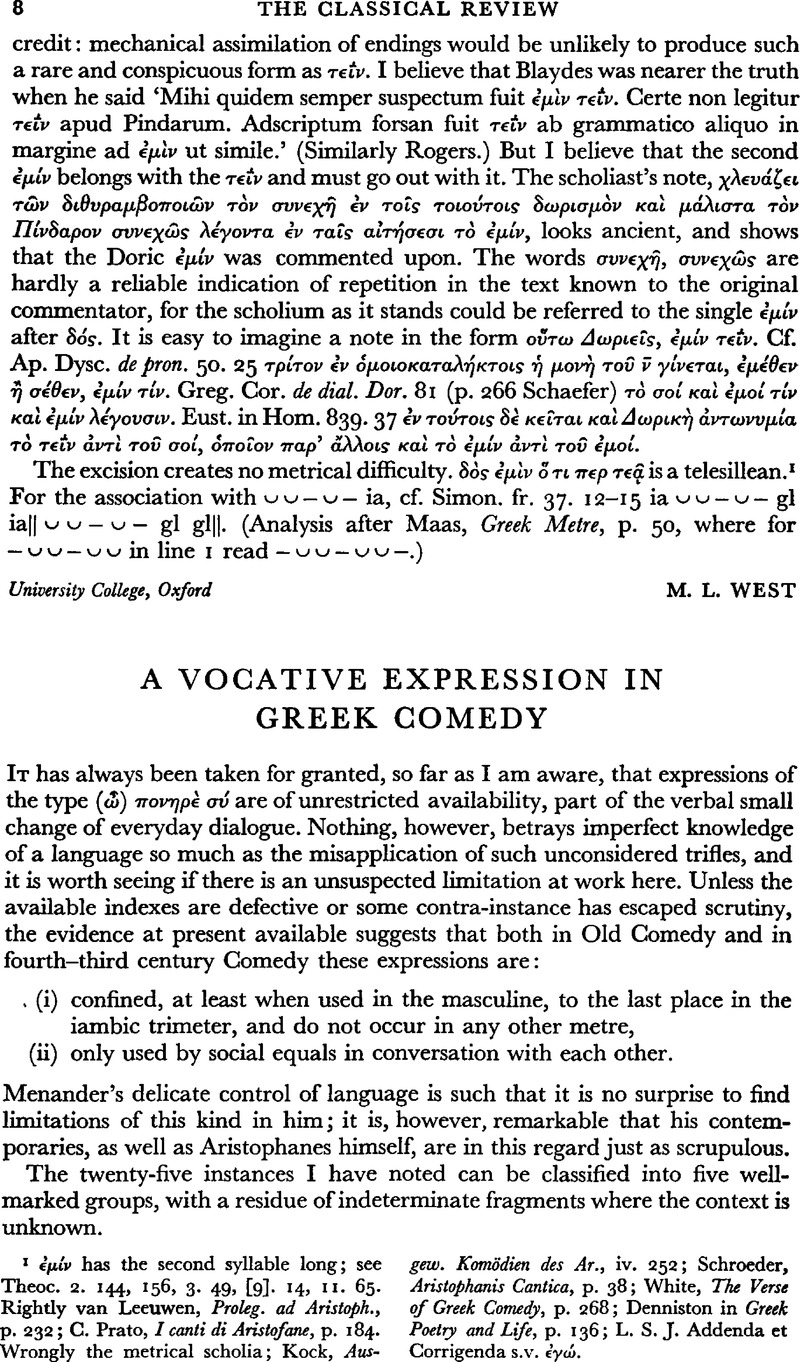No CrossRef data available.
Article contents
A Vocative Expression in Greek Comedy
Published online by Cambridge University Press: 27 February 2009
Abstract

- Type
- Review Article
- Information
- Copyright
- Copyright © The Classical Association 1968
References
page 9 note 1 This is consistent with Lloyd-Jones's view of this scene, based on the observation that in it ‘the two (speakers) treat each other with equal rudeness, so that they are probably equals in rank and station’ (Greek, Roman and Byzantine Studies, vii [1966], 137Google Scholar (cf. Emerita xxxiv [1966], 144Google Scholar).
page 9 note 2 Doubt about the precise attributions to speakers in these places does not affect the argument.
page 11 note 1 It may be relevant to observe that at Epitrep. 706 and again at 764 Smicrines addresses the maid Sophrone with …ἱερ⋯συλε γρα⋯ at line-end. Here ἱερ⋯συλε σ⋯ (cf. Men. Dysk. 640, E 18 supra) would have been metrically acceptable, but it is now possible to see why Smicrines avoided it. A similar adconsideration may apply to the passage from an unidentified comedy in P. Hibeh 6, line 42. Here one Demeas orders an unnamed woman to bring out a child: the text as given by Schroeder in Novae Comoediae Fragmenta in papyris reperta (Kleine Texte, 135) p. 6 runs
γ⋯ναι, τ⋯ βο⋯λ[ει; ν⋯ Δἰ] ⋯μβ[ρ⋯τ]ητ' ἄγε
(sc. τ⋯ παιδ⋯ον) Neither text nor situation is clear, but it may be that Demeas was addressing a slave woman and so avoided ⋯μβρ⋯ντητε σ⋯.




